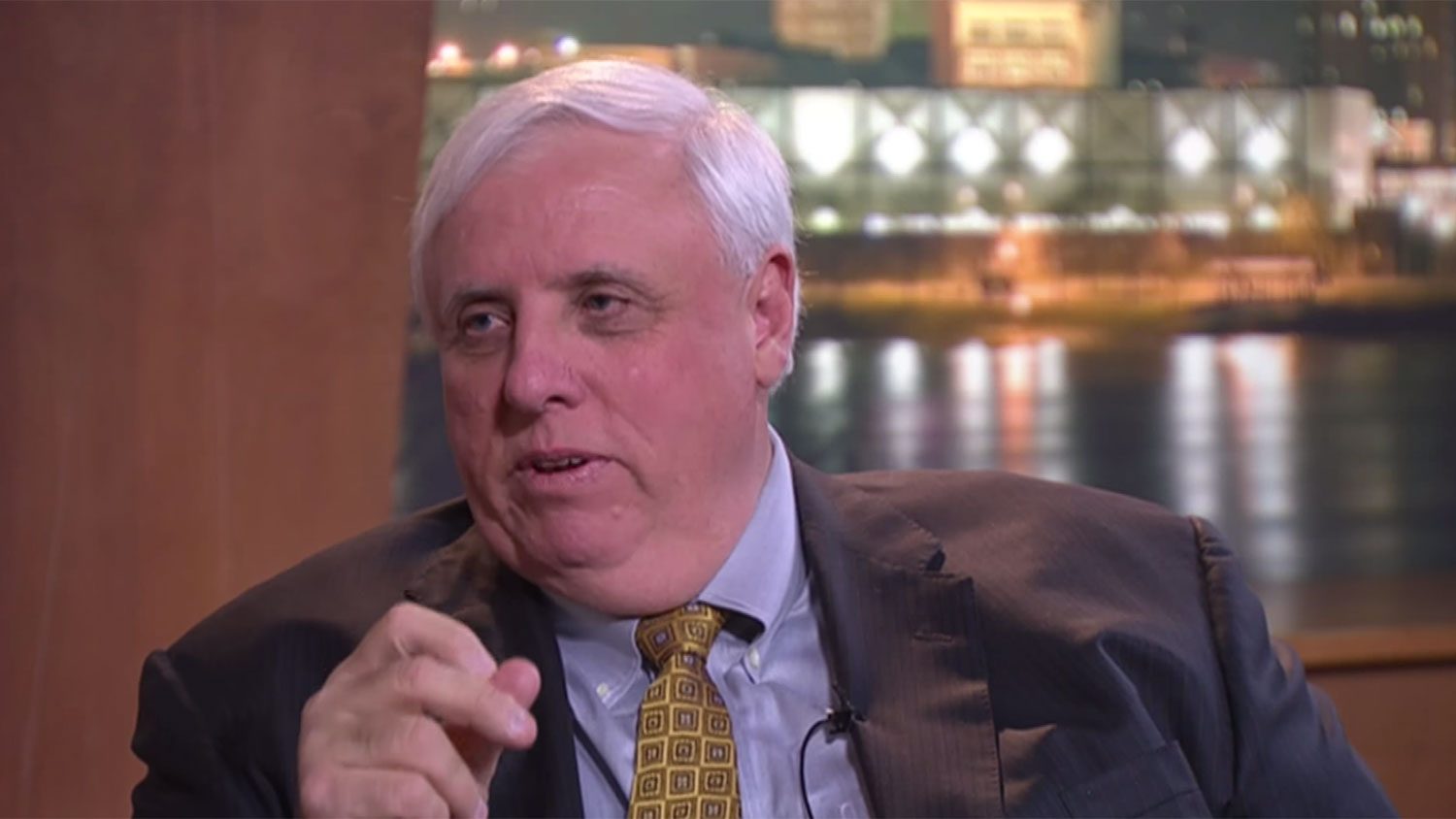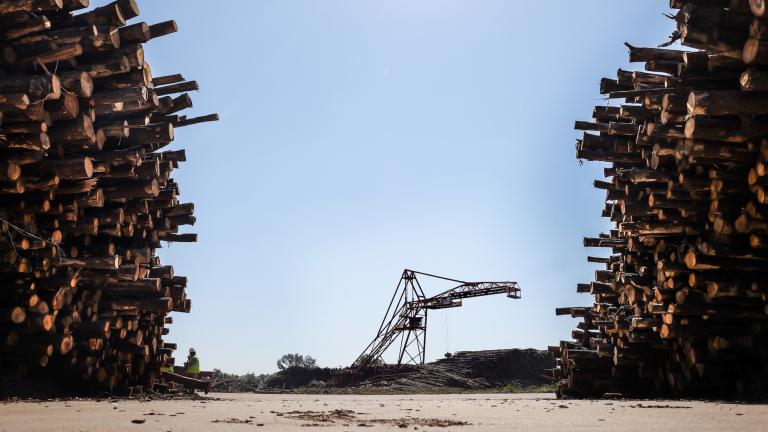For a half-decade now, Republicans have slammed Democrats running for office in Appalachia for propagating a so-called regulatory “war on coal.”
They may find it considerably more challenging to make that argument stick against Jim Justice, owner of the largest privately held coal company east of the Mississippi River, who announced last month he’s running for the 2016 Democratic nomination for West Virginia governor. The only West Virginian in the Forbes 400, Justice is worth an estimated $1.69 billion.
Justice is not to be confused with another wealthy West Virginia coal baron, “Dark Lord of Coal Country” Don Blankenship, the former Massey CEO who will soon be tried on charges that he conspired to skirt safety regulations at Upper Big Branch mine, where a 2010 explosion killed 29 miners.
Justice too has a reputation for ignoring mine regulations, but he’s built up a positive reputation in the state in other arenas. His public images feel contradictory in a way that eludes easy caricature. (The Justice campaign did not respond to requests for an interview.)
In eastern West Virginia, Justice is beloved for buying the historic Greenbrier, a luxury resort that famously served as Congress’ personal fallout shelter, out of bankruptcy. He established a PGA event, the Greenbrier Classic (Tiger Woods is among the golfers competing this year), and built a $30 million training facility for the New Orleans Saints on the Greenbrier grounds. Justice invests lots of his time in youth sports; he’s been president of Beckley Little League since 1992 and has coached boys and girls basketball for 30 years, racking up 761 wins and 156 losses. He’s donated millions to charities such as the Boy Scouts of America, the Cleveland Clinic, and Marshall University.
At the same time, Justice’s coal companies, some inherited after his father’s death in 1993, have racked up millions in fines for labor, safety, and environmental violations. In November, NPR reported that Justice owed nearly $2 million in overdue fines.
Justice’s outsized profile means that announcement of his gubernatorial candidacy last month attracted notice from national press — more than might otherwise be expected for a first-time candidate.
Justice has given money to both Democrats and Republicans over the years, according to the Center for Responsive Politics. He’s also shifted his party registration back and forth between the parties, with his most recent switch from Republican to Democrat occurring on Feb. 27, 2015, according to state Republicans.
Naturally, Republicans are not welcoming his candidacy as a Democrat. The West Virginia Republican Party quickly launched the website The Justice Record as its initial beachhead against his campaign. It includes bullet-pointed, link-filled attacks on Justice lumped under sections such as “Bad for Coal Safety and the Environment,” “Special Deals and Tax Breaks for Billionaire Jim Justice,” “Litigating Small Business Out of Business,” and “Supporting Barack Obama.” All of those excepting the last sound like they could have come from a left-leaning activist website.
In fact, the “Bad for Coal Safety and the Environment” section reads much like Justice to Justice, a website built by an activist coalition that includes Southern Appalachian Mountain Stewards (SAMS), Kentuckians for the Commonwealth, Statewide Organizing for Community eMpowerment (SOCM), Coal River Mountain Watch, and Appalachian Voices.
These groups have been fighting Justice-owned mine companies for years.
One ongoing battle surrounds Black Mountain, which sits along the Kentucky-Virginia border. The Virginia side has been decimated by mountaintop-removal mining, turning one ridge into “an ugly, barren and jagged moonscape that makes you want to cry when you see it,” wrote Stanley Sturgill, a former miner and federal mine inspector, in an op-ed last year arguing to save the Kentucky side of the mountain.
The community of Inman, which sits near the mountain, still remembers when a truck doing work for the mine dislodged a half-ton boulder, which fell into the town and killed 3-year-old Jeremy Davidson in 2004. Justice didn’t own that mine then, but he owns A&G Coal, the company working it now.
SAMS has fought Justice and A&G for years in southwest Virginia. Most recently, the group helped slow down and eventually stop permitting of Ison Rock Ridge, a proposed 1,200-acre surface mine near the town of Appalachia, Va. Additionally, the Virginia Department of Mines, Minerals and Energy threatened last year to sieze money set aside by A&G to guarantee reclamation of disturbed mined land — the first time that’s happened in more than a decade. SAMS members say they’re still engaged in litigation with A&G and so declined comment for this story.
The Tennessee-based SOCM has seen success fighting Justice’s coal operations too. Last summer, after months of lobbying and activism from SOCM, the federal Office of Surface Mining Reclamation and Enforcement issued 39 cessation orders against National Coal, Premium Coal, and S&H Mining — all Justice-owned companies in Tennessee — for failure to report water monitoring data, road maintenance violations, and failure to meet mine reclamation requirements. A Sierra Club news release on the orders claims that a contractor for Premium Coal actually planted trees upside down at a reclamation site.
Is this a portrait of malfeasance or incompetence? Tom Clarke, a conservationist near Roanoke, Va., where Justice’s Southern Coal Corp. is based, has come to believe it’s the latter, and he thinks he can help Justice clean up his record. Clarke had been involved with SAMS and had been highly critical of Justice’s coal operations. But last year he met with Jay Justice, Jim’s son who runs Southern, and after the meeting, Jim Justice essentially hired Clarke to help bring his mines into compliance with state and federal regulations. (Clarke, a healthcare executive, says he earns no money from the deal; he’s just a volunteer consultant.)
“The truth of it is, they were just very disorganized,” Clarke says. He points out that Justice bought a series of coal companies, including some that had fallen far behind in reclamation efforts before going into bankruptcy. “They didn’t have the systems in place,” Clarke says. “From my standpoint, none of this was intentional.”
Clarke says that when he started, there were 336 outstanding violations against Justice mines. Now there are fewer than 100, he says, most related to ongoing reclamation.
The activist community warily eyes Clarke’s deal with Justice, and many remain skeptical.
“I just think [Justice] doesn’t give a dadgum,” says Patrick Morales, president of the board of SOCM. “For Jim Justice to have inherited the business from his dad and turned it into what he’s turned it into, he’s obviously not stupid from a business sense. I can’t believe he’d be around for decades and not be aware of what’s going on.”
That skepticism turned into incredulousness when Justice announced his gubernatorial campaign last month. Activist Tom Torres calls the idea of Justice running for governor “absurd.”
“He has this public persona as a down-home charitable member of the community, and at the same time he owes millions of dollars to unpaid contractors and all these state and federal agencies for labor violations and environmental violations and safety violations,” Torres says.
Justice divested some of his coal empire in 2009, selling Bluestone Coal Corp. to Russia’s OAO Mechel in a deal valued at $568 million. After coal prices fell, however, Mechel idled the mines, and earlier this year Justice bought the business back for $5 million — less than 1 percent of the price for which he’d sold it six years earlier.
Justice’s campaign announcement included few details about his political platform or stances on issues. He did call for an “all-of-the-above energy approach which promotes growth in coal, natural gas and wind energy to create jobs and prepare West Virginia for the future.”
In 2010, Justice discussed climate change during an interview with the Huntington Quarterly, and argued that the United States can’t afford to leave coal out of its energy mix: “Really and truly, we do have to solve the environmental challenges. But for us to come up with some idealistic belief that today we can stop using coal, or today we can drastically reduce our use of coal, all we’re going to do is blow our legs off from an economic standpoint. China would own us. … [I]t’s just frivolous to think that while China builds one new coal-fired power plant every week, we’re going to completely change the world on some belief that we can step forward and be the leader in all climate change. We absolutely need to be addressing climate change and environmental concerns, and wean our way off of the fossil fuels in time, but we can’t even think of doing that today.”
West Virginia Republican Party Chair Conrad Lucas admits that Justice’s fortune could make him a formidable candidate. “His funding ability is certainly impressive and unprecedented, and that’s coming from a state where we’ve had a Rockefeller before,” Lucas says.
But while that will be a strength, Lucas identifies Justice’s business background as his biggest weakness. “He’s developed a reputation as someone who doesn’t pay his bills, which is objectively a bad thing in all avenues,” Lucas says. “There’s a cottage industry for lawyers in West Virginia of suing Jim Justice’s companies. The reputation for not paying bills and for being sued over and over is very well known in the state and throughout the region.”
Yet Justice has good reason to feel optimistic about his candidacy. Former governor and current U.S. Sen. Joe Manchin, a Democrat who famously shot the cap-and-trade bill in a 2010 campaign ad, has all but endorsed Justice. Larry Puccio, former chair of the West Virginia Democratic Party and the leader of Manchin’s political action committee, previously worked as a lobbyist for Justice and will now serve as a consultant to his campaign.
Justice’s money and apparent backing by the state Democratic establishment make him the likely favorite against Jeff Kessler, former state Senate president and current minority leader, in a party primary.
“If you’ve got Manchin on your side, Justice’s wealth and party backing, it would be hard to see how Kessler can get beyond that,” says Scott Crichlow, associate professor of political science at West Virginia University.
As for the general election, that’s another question. West Virginia has trended Republican since President Obama’s 2008 election. The University of Virginia Center for Politics’ “Crystal Ball” blog projects a “narrow Republican edge” in the race. But Crichlow notes that Republicans have their own challenges: “They can clearly win statewide if they get their act together. Can they avoid internal battles at this point?”
Meanwhile, expect The Justice Record’s list of alleged transgressions to grow: Last week, on the same day that Manchin called Justice’s candidacy “tremendous for the state of West Virginia,” two of Justice’s companies were sued for failure to pay $2 million in a disputed 2013 coal deal.




